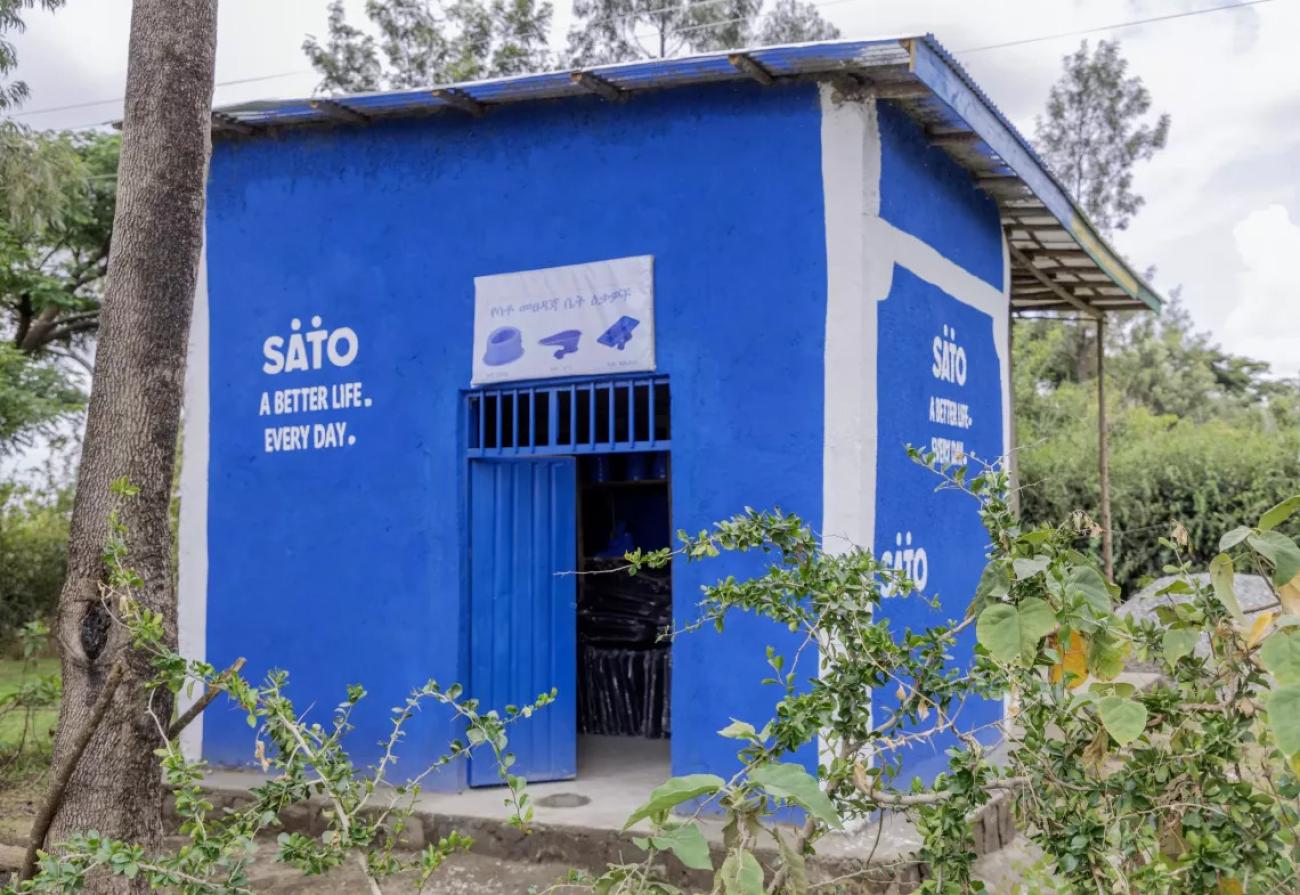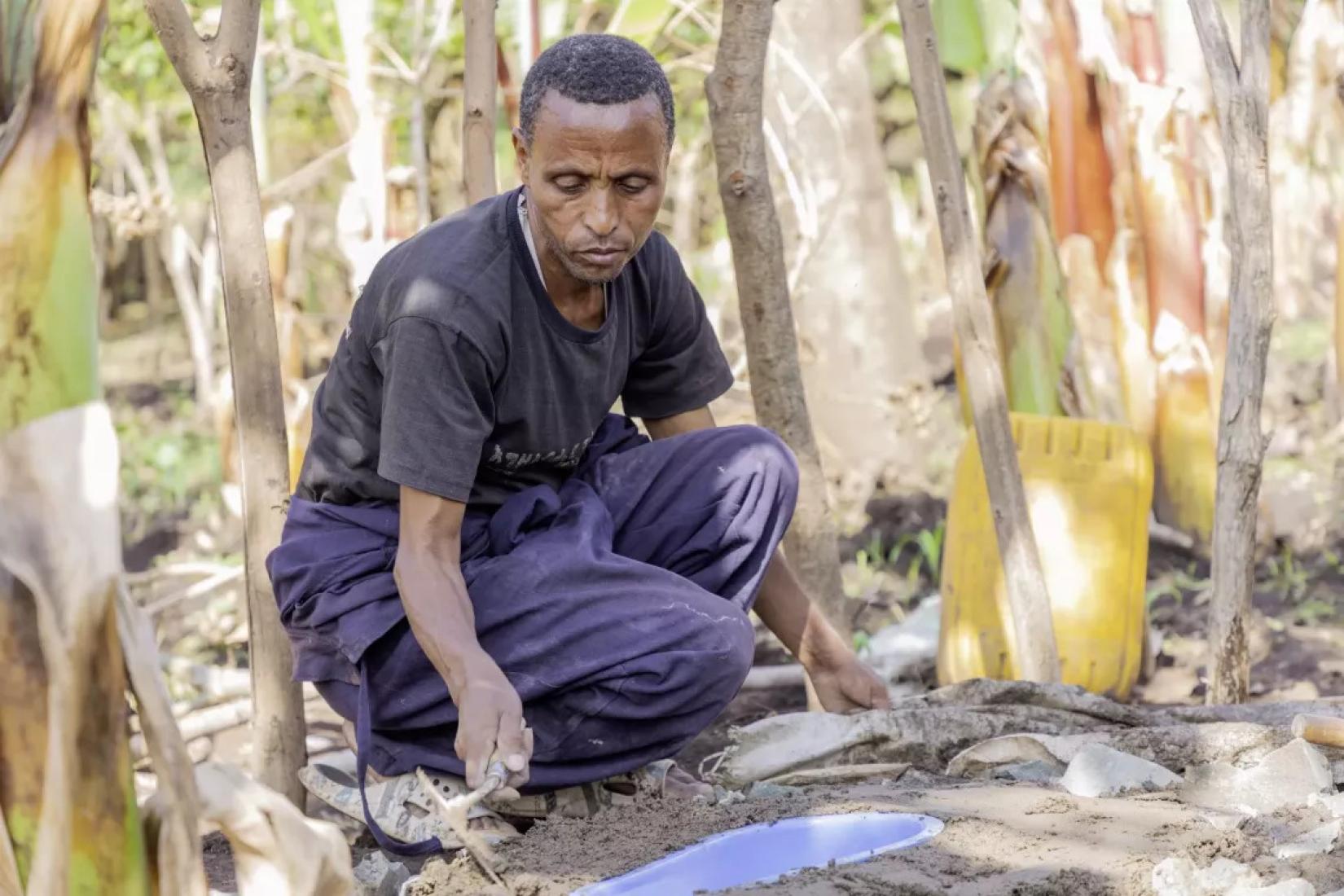Bridging the Gap

Tesfaye’s Impact on Rural Sanitation
Tesfaye has spent his career transforming the household latrines in his home village in Bushera, Misrak Bedawecho woreda (district). He often upgrades his customers’ mud floors that absorb urine and attract flies into a cleaner, more hygienic space with a durable concrete floor and a SATO Pan.
Tesfaye isn’t just a mason; he is a pioneer. In 2015, he received specialized training in manufacturing and installing concrete slabs. With this new skill and a vision for a healthier village, he launched Lakilina Sanitation Enterprise with his friends. Their goal was to provide better sanitation solutions and generate income.

Over the years, the enterprise flourished, selling and installing more than 7,000 concrete slabs in 10 years. However, the high cost and weight of the slabs made transportation difficult, limiting access for remote households. Then, plastic latrine products entered the market, revolutionizing sanitation solutions. These lightweight, affordable slabs made latrine upgrades accessible to even the most remote communities. In the past year, Tesfaye and his team installed over 1,000 SATO Pans.
Despite his success, Tesfaye faced another hurdle: he did not have a dedicated space to showcase his products. “I always dreamed of owning a shop where people could see, learn, and buy better latrine solutions,” he said. Recognizing his dedication, the Make a Splash phase three (MaS III) project, a global partnership between UNICEF and LIXIL, provided financial assistance to help him build his dream shop.
Strategically located, the shop allows customers to explore sanitation options firsthand. Currently, it features two plastic latrine products, but Tesfaye plans to expand his inventory to include construction essentials and other cleaning and hygiene products.
“It’s incredible to see people transitioning from open defecation to proper sanitation,” Tesfaye says. “This work is not just about improving latrines; it’s also my livelihood. It has helped me improve my living standard, build a better house, and send my children to a better school.”
The MaS III project is strengthening sanitation markets across eight woredas (districts) in four regions of Southern Ethiopia. By building sustainable market systems, the project aims to improve the coverage of basic and safely managed sanitation, empowering communities to invest in decent sanitation and ensuring a healthier future for all. The initiative also aims to support the progress of SDG target 6.2, which aims to achieve access to adequate and equitable sanitation and hygiene for all and end open defecation, paying special attention to the needs of women and girls and those in vulnerable situations by 2030.
Written by Dawit Haile and Netsanet Kassa



